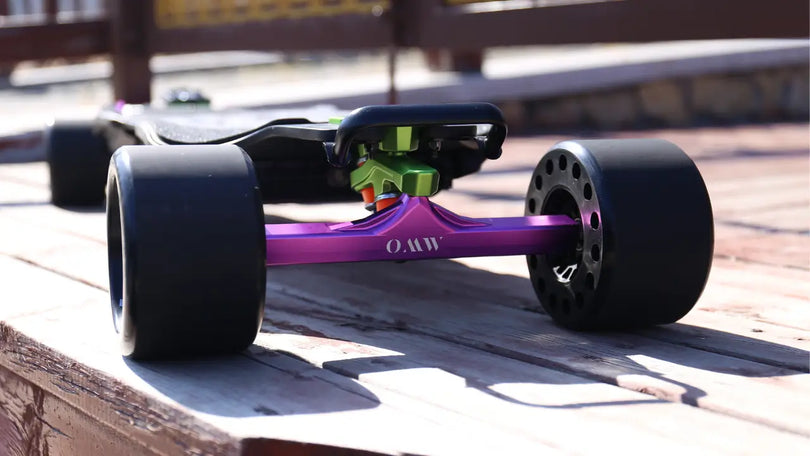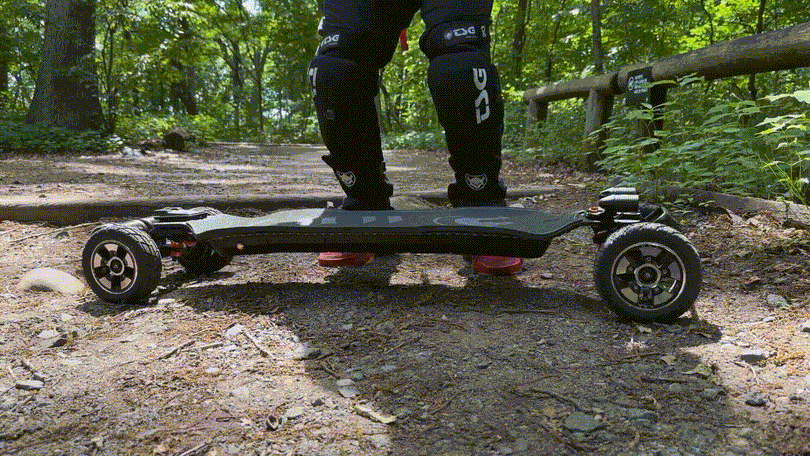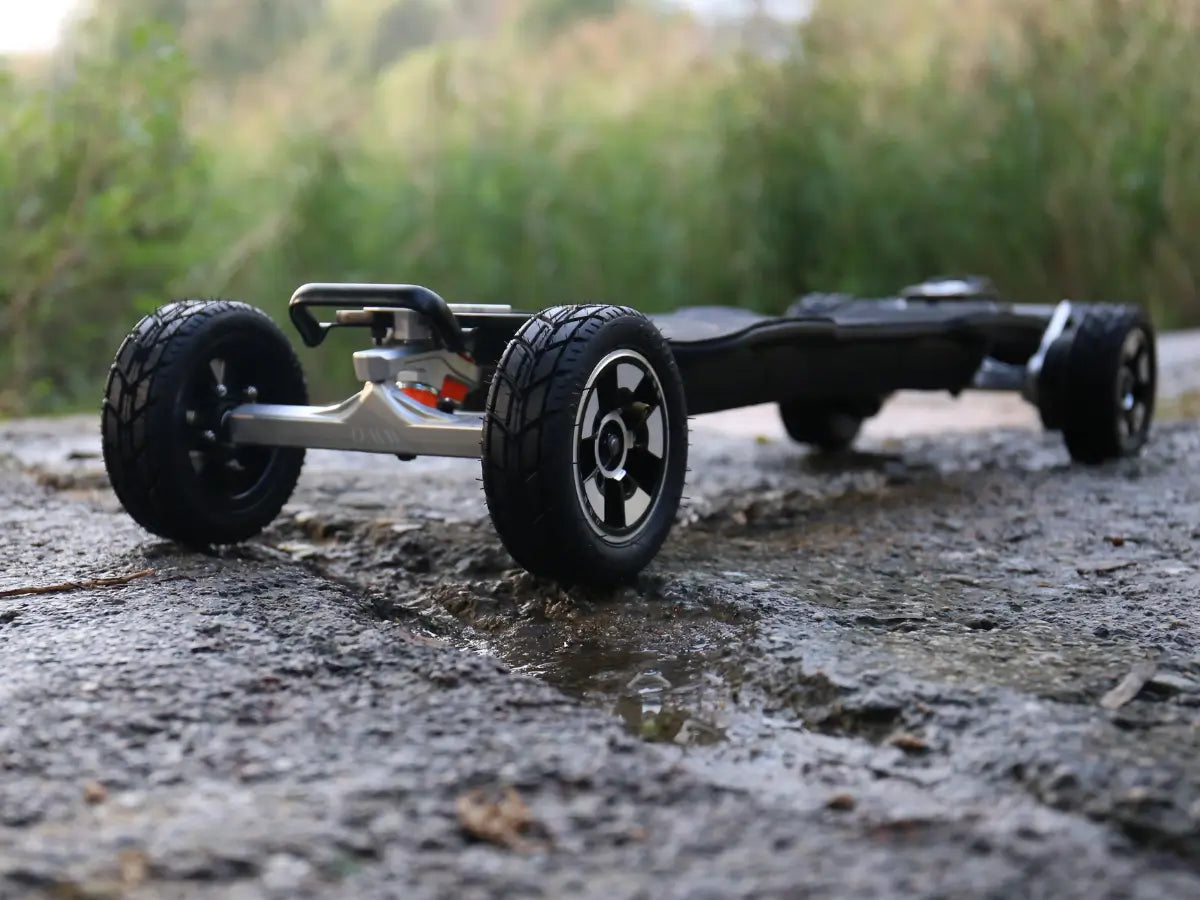Electric skateboards have become one of the fastest-growing micromobility tools in the world. They are fun, practical, compact, and ideal for short urban commutes. But unlike e-bikes or scooters, electric skateboards fall into a legal “gray zone” in many parts of the United States. Different states and sometimes even different cities within a state have completely different rules.
Whether you’re commuting, traveling, or planning to use an e-skate for delivery work, understanding local laws is essential to avoid fines, confiscation, or safety risks. This guide summarizes the latest 2025 electric skateboard regulations in the U.S., including:
- Where e-skateboards are legally allowed
- Speed limits and technical restrictions
- Helmet, registration, and insurance requirements
- State-specific compliance differences
Let’s dive in.
I. The Legal Status of E-Skateboards: Avoiding the “Motor Vehicle” Trap
The legality of your electric skateboard depends on how authorities classify it. Some states have created new categories for these vehicles, while others default to labeling them as illegal motor vehicles due to their lack of traditional safety features like handlebars or seats.
Classification Differences:
California’s EMB Model: California pioneered a progressive approach by establishing the specific category of Electrically Motorized Board (EMB). Crucially, the law explicitly states that an EMB is not a "Motorized Skateboard", which was previously banned on most public ways.
Texas’s Scooter Model: Texas adopts a broader definition, classifying e-skateboards under "Motor-assisted Scooters". This classification provides riders with more permissive access to local roads.
The Technical "Compliance Tripwire"
Even if your board is legally classified, exceeding technical limits can instantly make it illegal:
Ⅱ. State-by-State Compliance Breakdown
E-skateboard regulations in the U.S. are highly decentralized. Here’s a look at three key markets:
California: The Strict Compliance Model
California offers clear but strict rules (refer to state law AB-604):
- Minimum Age: 16 years
- Helmet Requirement: Mandatory for all riders
- Speed Limit: 20mph (32km/h)
- Riding Areas: Highways, public bike paths, and bike lanes. Ride in bike lanes when available; otherwise, stay to the right.
- Sidewalks: Generally prohibited unless allowed by local ordinance
- Penalties: Violations may include fines and DUI laws
Texas: The Permissive Road Model
Texas focuses more on rider behavior than technical compliance:
- Road Access: Roads with posted speed ≤ 35mph
- Sidewalks & Paths: Allowed on separated bike paths; sidewalk use depends on local rules
- Administrative: No license, registration, or mandatory insurance
- Speed Limit: 20mph on public roads
New York: The Municipal Maze
New York state law allows e-skateboards on certain roads, but city regulations, like NYC, add restrictions:
- State Road Limit: Streets ≤ 30 mph
- NYC Limit: Max speed 15 mph
- Sidewalks: Prohibited unless local law allows
- Licensing: Not required
States With Mixed or Gray-Area Regulations
Most states fall into this category.
They do not explicitly ban electric skateboards, but also do not clearly legalize them. Typical situations include:
- Allowed on bike lanes
- Allowed on roads < 25 mph
- Sidewalk riding prohibited
- Helmet required for minors
- No registration or insurance required
Examples: Colorado, Florida, Ohio, Oregon, Washington, Minnesota
Tip: Always check local ordinances; cities within the same state can have very different rules.
Ⅲ. Do Electric Skateboards Require Registration, License, or Insurance?
In nearly all U.S. states:
✔ No driver’s license required
✔ No insurance required
✔ No registration required
Exceptions: In very strict cities where boards are classified as motor vehicles, registration and insurance would be required, but e-skateboards do not qualify, making public road use illegal. Examples include NYC and certain California and Midwest municipalities.
Ⅳ. Essential Safety and Compliance Checklist
Even if laws are unclear, safety should always be your top priority:
- Wear a Helmet: While only mandatory in some states (like California for all riders and Arizona for minors ), wearing a properly fitted helmet is non-negotiable for safety, given the risk profile of high-speed PEVs.
- Ensure Visibility: If riding at night or in low-light conditions, your board must be equipped with proper lighting (white light in front, red light, and reflector in the rear).
- Check Local Ordinances: Always verify specific city or county rules regarding helmet requirements, parking zones, and sidewalk bans.
- Consider Insurance: E-skateboard insurance is generally not mandatory under US law. However, given the high costs associated with medical expenses and third-party damages in accidents, experts strongly recommend purchasing a Personal Light Electric Vehicle (PLEV) policy for financial protection.
- Keep Speeds Reasonable: Follow state and local speed limits; when in doubt, ride slower.

Ⅴ. Conclusion: Electric Skateboard Laws in the US Are Still a Patchwork
In 2025, electric skateboard regulations in the United States will remain fragmented, inconsistent, and rapidly evolving. Some states welcome micromobility; others restrict or ban electric skateboards entirely. Cities hold enormous power in determining what is allowed.
If you want to ride safely and legally, always:
- Know your city’s micromobility rules
- Use bike lanes
- Keep speed reasonable
- Wear protective gear
- Stay updated on law changes
By understanding and following local laws, you could enjoy the thrill and convenience of electric skateboarding without legal or safety risks.







